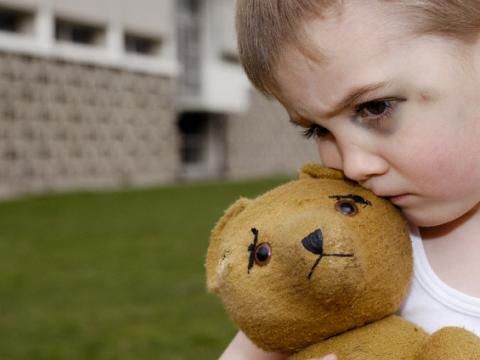New publications
Domestic violence can spread through biological mechanisms
Last reviewed: 01.07.2025

All iLive content is medically reviewed or fact checked to ensure as much factual accuracy as possible.
We have strict sourcing guidelines and only link to reputable media sites, academic research institutions and, whenever possible, medically peer reviewed studies. Note that the numbers in parentheses ([1], [2], etc.) are clickable links to these studies.
If you feel that any of our content is inaccurate, out-of-date, or otherwise questionable, please select it and press Ctrl + Enter.
Animal experiments have shown that stress stimulates aggressive behavior towards a mate, and that such behavior can be passed down from generation to generation without any social contact between them.
Domestic violence is generally believed to be transmitted through social contact. For example, if a father beats his son, then there is a high probability that the son will beat his offspring when he grows up. But, as experiments by scientists from the Federal Polytechnic School of Lausanne (Switzerland) have shown, domestic violence does not necessarily have its roots in childhood psychological trauma: it can have non-social causes.

It would be hardly possible to conduct such a study on people: it would require isolating a person from any social contacts, not to mention a long period of observation. Therefore, the experiments were conducted on rats. Young males were subjected to stress several times: for example, they were put in a room where they had nowhere to hide, or they were scared by the smell of a fox. When the rats reached sexual maturity, females were added to them. Those subjected to stress in adolescence behaved more aggressively towards the ladies. But the most surprising thing was that the offspring of these angry males acted the same way as their fathers. And this despite the fact that the male rats were separated from their parents immediately after birth, that is, the fathers could not teach them anything like that - at least through social contact.
The researchers reported on their experiments in the journal Translational Psychiatry.
In scientific terms, the researchers concluded that some behavioral reactions can take root in the biology of an organism and be passed on to the next generation. It is usually believed that genes can influence behavior, but not the other way around. Now scientists are faced with a difficult task - to propose a mechanism for the non-social inheritance of aggressive behavior. Females who had to interact with unkind males discovered a number of behavioral, hormonal and neurological changes. Moreover, these changes affected both those females who interacted with stressed males and those who dealt with the offspring of the original "aggressors". It is possible that aggression is passed on to offspring due to physiological changes in the females' bodies. On the other hand, a female rat who is unlucky with her husband may, due to her own stress, neglect caring for her cubs, which will ruin their character. (However, the researchers themselves say that they were unable to notice a difference in the level of maternal care between these and ordinary females.)
Finally, there is an epigenetic explanation, which suggests that stress may alter the pattern of chemical modifications in DNA and histones, causing genes to work differently. Such changes may well be inherited.
However, be that as it may, it is too early to extend the results of the experiments to people - so as not to give additional justifications to those who are used to beating their wives and children half to death. Otherwise, each of them will explain their intemperance and rudeness by the fact that they, supposedly, fell from a tree as a child and experienced "stress" because of it.

 [
[